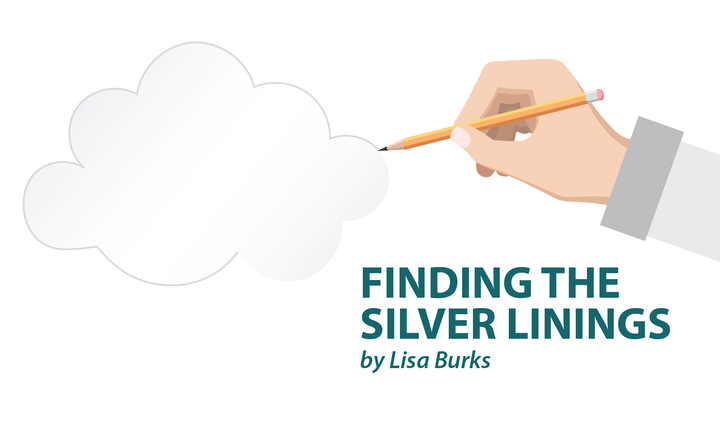Crohn’s disease often is viewed as a “bathroom disease,” because having frequent bathroom trips is associated with Crohn’s. That is not always the case for those suffering with this debilitating disease. When those bathroom symptoms become bothersome, this includes diarrhea or in some cases the exact opposite, constipation, and it’s hard to have bowel movements (BM).
What is constipation and what are the symptoms?
Constipation is a condition that occurs when someone has fewer than three bowel movements in a week. Often BM stools are hard and dry, making it difficult or painful to pass. It’s important to know that not everyone has the same bowel movement habits. Some people have several BMs daily, some have just a few per week.
Constipation can cause a variety of secondary symptoms, such as nausea, abdominal bloating, cramping, and a feeling of fullness.
When I was first diagnosed with Crohn’s, I was making up to 25 trips to the bathroom daily. I had the hardest time trying to control having to go so many times, and staying hydrated was a struggle. A lot of that changed when I had a hemicolectomy. One section of my colon was so diseased it was wreaking havoc and I was getting obstructions. After that portion was removed, I still was making numerous trips, although fewer. Fast-forward two years, and now I live with the opposite problem, chronic constipation.
My doctor told me that although it’s less common, the reason for my constipation is Crohn’s disease. After some testing, my doctor found a large section of my colon is moderately inflamed before the anastomosis site and has stopped moving. Although there really isn’t a way to get that section to start functioning normally again, there are some ways to help.
Whom does constipation affect?
Although anyone can suffer with constipation, there are certain groups of people who are more at-risk.
These include:
- Women, who are generally more prone, especially while pregnant.
- Older people.
- Anyone after surgeries.
- Those taking certain medications, such as pain medications and anti-depressants.
- Those with conditions that affect hormones, such as overactive parathyroid or underactive thyroid. Those with diabetes also carry a risk.
Although occasional constipation is common from time to time, some people experience chronic constipation that can interfere with their daily routines. Constipation is considered chronic if you’ve experienced symptoms for the last three months. Treatment for chronic constipation depends on the underlying cause.
Ways to help ease constipation
There are a few ways to treat constipation, including temporary or chronic, and it begins with diet and lifestyle changes. Here are some tips:
- Increase your fiber intake. Adding fiber to your diet can help speed passage of the stool through your intestines. Some high-fiber foods are fresh fruits, vegetables, whole-grain breads, oatmeal, and cereals. Eat healthy and balanced meals.
- Exercise. It’s proven that physical activity increases activity in your intestines. If you do not already exercise, try adding some simple exercises. Walking is a great place to start!
- Supplements and over-the-counter medications. When diet or lifestyle changes aren’t enough to help, laxatives may produce better results. Each works differently to make it easier to have a BM. There are some you can buy over the counter.
Fiber supplements, such as Metamucil, Konsyl, FiberCon, Citrucel.
Stimulants, including Correctol, Dulcolax, and Senokot, which work by causing your intestines to contract.
Laxatives, including milk of magnesia, magnesium citrate, Lactulose and Miralax.
Stool softeners, such as Colace and Surfak.
Enemas and suppositories. In serious cases, sodium phosphate, soapsuds, or tap water enemas can be useful to soften stool and produce bowel movements.
- Prescription medications. If over-the-counter remedies don’t help, your doctor may recommend taking prescription medications. There are several prescription medications that doctors can prescribe to treat chronic constipation.
Medications, including Amitiza and Linzess, are available by prescription. These work by drawing water into your intestines and speeding up the movement of stool. There are also prescription suppositories, such as glycerin or bisacodyl, to soften stools.
My treatments: what worked, what didn’t
I tried several non-prescription options to help with my chronic constipation, but never experienced much relief. I live with many symptoms, including nausea, feeling of fullness, and cramping. My doctor prescribed Linzess because the problem is my intestines are not moving anymore. I don’t get great relief, but some is better than none! I also found adding the over-the-counter laxative Miralax on top of the prescription medication has helped.
I am only able to do this with my doctor’s recommendation. As I have said numerous times before, always stay in communication with your doctor. He or she will be able to give you safe options to obtain relief from constipation, but first needs to narrow down the possible causes before starting treatments.
***
Note: IBD News Today is strictly a news and information website about the disease. It does not provide medical advice, diagnosis, or treatment. This content is not intended to be a substitute for professional medical advice, diagnosis, or treatment. Always seek the advice of your physician or other qualified health provider with any questions you may have regarding a medical condition. Never disregard professional medical advice or delay in seeking it because of something you have read on this website. The opinions expressed in this column are not those of IBD News Today, or its parent company, BioNews Services, and are intended to spark discussion about issues pertaining to IBD.



I have had chronic partial obstructions in the past. They happen suddenly so I would not say it is constipation. The doctor believes it is motility and a stricture. Since I started drinking Plumsmart after every meal, just a small amount I am having fewer obstructions. Some people drink 8oz at once, I could not handle that. The magnesium added to the juice helps your muscle contract. It is an expensive juice but after 5 hospitalizations to go “nothing by mouth” in a two year period, I feel like I have my life back. Due to the stricture I adhere to a very low fiber diet.
Plumsmart works for my friend as well 🙂
Hello Marge,
Thank you for both taking the time to read my column and posting a comment here. I always appreciate feedback! What I was meaning towards Obstructions and constipation was more of a symptom to watch out for because of the fact it is a symptom of them. You’ve had 5 obstructions in two years?! That is 5 too many! I have had 3 in the past two years, and boy they are hard and pretty painful! I’ve dealt with one total colon obstruction and two functional partial obstructions. Moreso now is my issues also stem from motility. My intestines just don’t want to contract/function anymore. I’ve actually never tried Plumsmart before. It makes sense since prunes are a good way to help with digestion. I dont think I could do 8oz of that juice either. NPO is not fun!! Im so glad to hear that lately you have been feeling better, and I hope that lasts for a long time! If you get more strictures and obstructions is your doctor considering surgery to remove those areas of the intestines? My doctor also wants my on a low fiber diet. He called it a low residue diet. Keep on fighting my fellow Crohnie Warrior!!
My doctor does not want to do surgery unless I have an obstruction that will not resolve NPO. More surgery means more scar tissues and that can lead to adhesive related strictures. My inflammation is under control with Humira. I am so low residue I eat white rice and white tandoori bread. Also, nothing raw. I also avoid cooked veggies that cause gas. My last tip is maternity leggings-haha. They are so comfortable when things are moving slowly. Good luck to you!
It’s good that your doctor is conservative when it comes to having surgery. Some doctors are gun-ho on sending their patients out to have resections or colostomy’s. I’ve actually never heard of Tandoori bread or using maternity leggings before, I might have to have to look into that. It’s good to avoid raw veggies for sure!! I don’t do too well when eating that sort of food. I used to take Humira but it just didn’t provide enough relief or preventing obstructions. I was switched to Remicade infusions and although it hasn’t been enough to put me in remission, it has decreased the degree of inflammation in my small and large intestines. I hope your Humira continues to work for you! Good luck to you too!!
i have crohns about a foot of my small bowel removed now i find out if i take pill instead of capsules i have constipation badly i would like to know if this happens to other people with crohns